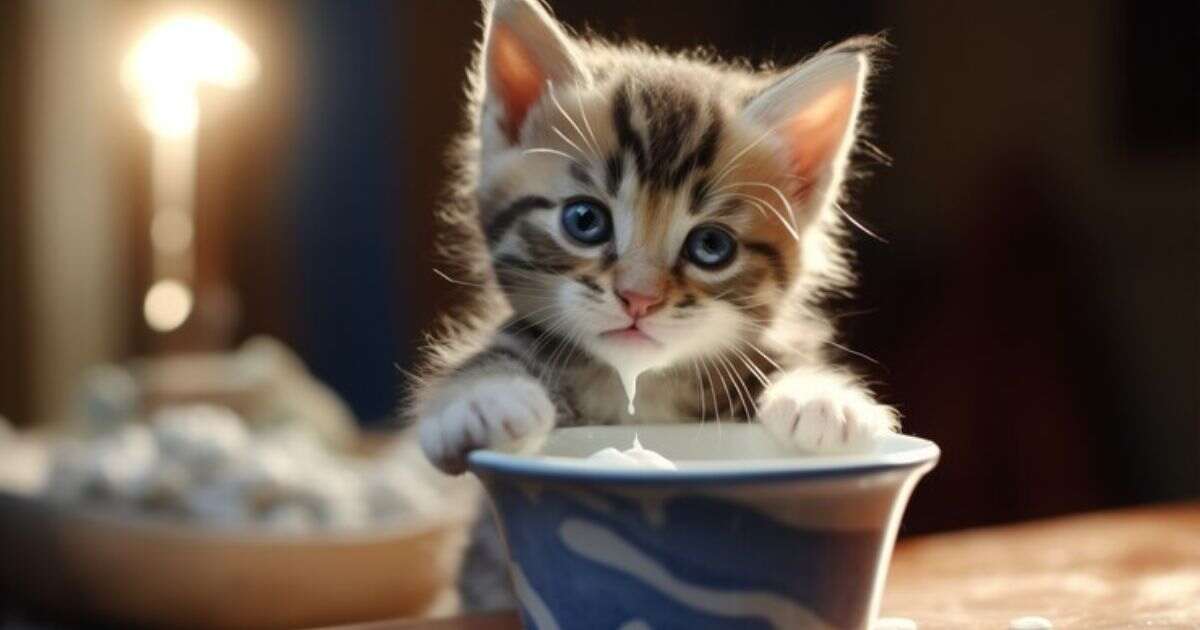When Mother Nature Can’t: A Guide to Kitten Milk Replacer
In the world of kittens, sometimes things don’t go as expected. For example, some kittens may be left without a mother or their mother might not make enough milk. But don’t worry! There’s a special milk called kitten milk replacer (KMR) that can help these little ones.

A Special Drink for Young Cats
KMR is a special liquid that imitates a mother cat’s milk. It contains important nutrients like protein, fat, carbs, and vitamins that are vital for a kitten’s growth. If kittens don’t have their mother’s milk, they miss out on antibodies to fight infections and the energy to grow healthy. In such situations, KMR helps orphaned or weak kittens by providing them with what they need to survive and thrive.
Special Kitten Milk
Kitten Milk Replacer (KMR) is not just regular milk. It’s specially made to be gentle on a kitten’s stomach. It contains the right mix of nutrients like protein for muscles, fats for energy, and vitamins for strong bones and immunity.
Choosing the Right Kitten Milk Replacer (KMR)
There are many KMR choices out there, which can make it hard to decide. But don’t stress! Just talk to your vet. They can suggest the ideal KMR based on your kittens’ age and any health issues they may have. Make sure to pick a trusted brand that meets AAFCO standards for giving kittens all the nutrients they need.
The Art of Bottle Feeding Kittens
Feeding kittens with KMR (Kitten Milk Replacer) needs care and practice. Kittens need the right bottle size, nipple type, and feeding position. Your vet can help you feed the kittens correctly. They will advise you on how often to feed, how much to give at each feeding, and how to know when the kittens have had enough.
Moving on from Milk
Kitten milk replacer (KMR) is helpful but not forever. As kittens get older, they will start eating solid food. Your vet will guide you on when to start giving them kitten formula and later on, dry kitten food.
The Joy of Caring for Kittens
Taking care of kittens using kitten milk replacer needs commitment and patience. However, the benefits are priceless. Watching these small fluffy creatures become healthy and robust, and realizing that you contributed significantly to their well-being, is a touching experience that will always be remembered. If you ever find yourself looking after orphaned kittens, embrace the task and the happiness of nurturing life with the aid of this wonderful product: kitten milk replacer.
Kitten Milk Replacer Powder
Kitten milk replacer (KMR) usually comes as a liquid, but there’s also a powdered version. Both give young kittens important nutrients, but the powder is easier to store and lasts longer. You just have to mix it with warm water as per the instructions when there’s no mother’s milk around. Make sure to ask your vet for advice on the right KMR and how to feed your little cats.
Kitten milk replacer homemade
Taking care of kittens is wonderful, but making your kitten milk replacer at home isn’t a good idea. It’s hard to get the right nutrients that kittens need to grow and stay healthy. Store-bought kitten milk replacer is made to be just right for them. For the option for your kittens, ask your vet for advice on which store-bought KMR to use.
What Kind of Milk Can I Give a Kitten?
The only milk that kittens should drink is their mother’s milk or a special kitten milk replacer (KMR) you can buy at the store. Cow’s milk and other dairy products don’t have the right nutrients for kittens and can upset their stomachs. If you’re taking care of a young kitten without its mother, go to a pet store or vet to get KMR and advice on how much and how to feed it.
FAQs | When Mother Nature Can’t: A Guide to Kitten Milk Replacer
Q1. What can I substitute for kitten milk?
A: In a pinch, you can temporarily substitute kitten milk replacer with a homemade formula. However, it’s good to consult a veterinarian immediately for proper kitten care. A homemade option can be made with warm water, evaporated milk, egg yolk, and a sprinkle of bone meal, but lacks the vital nutrients found in commercial kitten milk replacer. Don’t use cow’s milk as a long-term substitute; it can cause digestive upset in kittens.
Q2. What kind of milk can kittens drink?
A: The only milk truly suitable for kittens is either their mother’s milk or a commercially produced kitten milk replacer (KMR). Kitten intestines lack the enzymes to digest lactose in cow’s milk, leading to diarrhea and dehydration. KMR is specially formulated to mimic the nutrient profile of the mother’s milk and provides proper nourishment for young kittens.